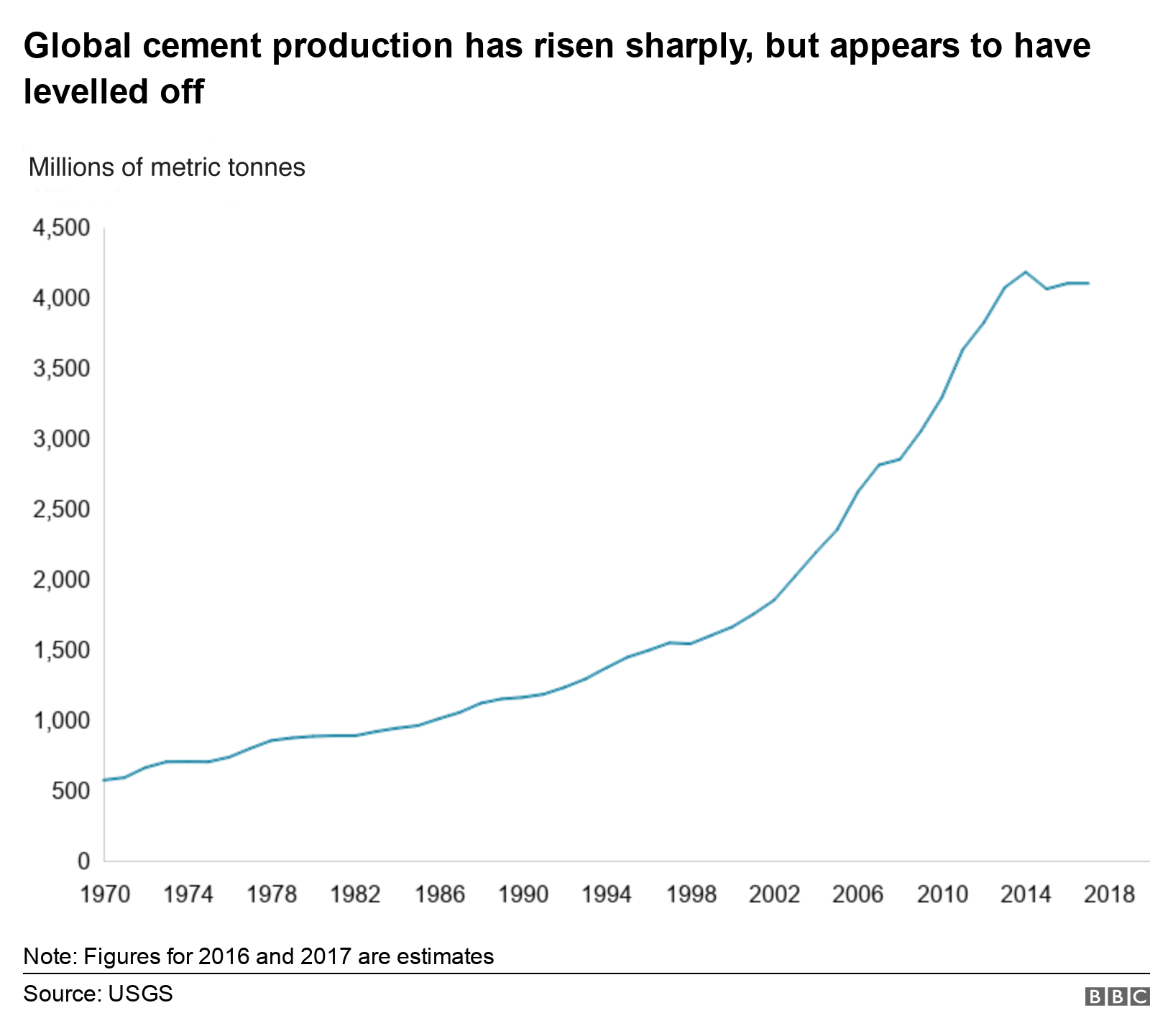As the cement and concrete industries make large efforts to reduce greenhouse gas emissions it is critical that they remain mindful of the impacts decisions have on other environmental burdens to avoid undesired side effects Miller said. NACP Greenhouse Gases Multi-Source Data Compilation 2000-2009.
 1 Annual Carbon Dioxide Emissions Of The Cement Industry And The Share Download Scientific Diagram
1 Annual Carbon Dioxide Emissions Of The Cement Industry And The Share Download Scientific Diagram
However the sectors emissions as a whole have risen significantly with demand tripling since 1990.

Cement greenhouse gas emissions. Learn about key greenhouse gases and their sources as well greenhouse gas emissions at the global national facilityand household level. Greenhouse gas emissions by at least 50 by 2030 in the latest push by the administration to aggressively combat. As mentioned above fuel requirements and subsequently carbon dioxide.
Cement is the second most-consumed resource in the world with more than 4 billion tons of the material produced globally every year. If the cement industry were a. Vulcan The Vulcan project provides estimates of carbon dioxide emissions from the combustion of fossil fuels and from cement production for the conterminous United States and the state of Alaska.
Cement Emissions The production of cement releases greenhouse gas emissions both directly and indirectly. The carbon dioxide emissions from the production of concrete are so high that if concrete were a country it would be the third-largest emitter of CO2 behind China and the United States. Making traditional cement results in greenhouse gas emissions from two sources.
The only thing we consume more of is water. Cement accounts for 7 of human-caused carbon dioxide emissions more than any country except China and the US. NACP Urban Greenhouse Gases across the CO 2 Urban Synthesis and Analysis Network.
GREENHOUSE GAS EMISSIONS In cement manufacturing CO2 is emitted as a result of both fuel combustion and process-related emissions. President Biden is pledging to reduce US. Cement is the source of about 8 of the worlds carbon dioxide CO2 emissions according to think tank Chatham House.
As a result the industry generates approximately 8 percent of global CO2 emissions not far behind the agriculture industry which accounts for 12 percent. Jump to main content. Because the primary GHG emitted by the cement industry is carbon dioxide CO2 the control technologies and measures presented in this document focus on this pollutant.
Concrete is one of. Concrete of which cement is an. Most combustion-related CO2 emissions result from clinker production and specifically the fuel used for pyro-processing.
Ranked with CO2 emissions from individual countries the cement industry would be the third-highest emitter. Production of cement concretes key ingredient accounts for 7 of global emissions of the greenhouse gas said Marcius Extavour XPRIZE vice president of climate and energy. The direct emissions of cement occur through a chemical process called calcination.
Available to mitigate greenhouse gas GHG emissions from the cement manufacturing sector at this time. Concrete is the most widely used artificial material in existence. Most notably the production process for cement produces large volumes of greenhouse gas emissions leading to net 8 of global emissions.
An official website of the United States government. Translate abstract GHG measurements into concrete terms that are easy to understand. The study received no external funding.
It requires intense heat and so a lot of energy to heat up the. The production of cement the binding element in concrete accounted for 7 of total global carbon dioxide emissions in 2018. Carbon dioxide and methane are the two greenhouse gas most responsible for global warming.
8 9 Significant research and development is being done to try to reduce the emissions or make concrete a source of carbon sequestration. The average CO2 intensity of cement production the emissions per tonne of output has fallen by 18 globally over the past few decades according to Chatham House. Progress so far has come in three main areas.
The heating of limestone releases CO 2 directly while the burning of fossil fuels to heat the kiln indirectly results in CO 2 emissions.